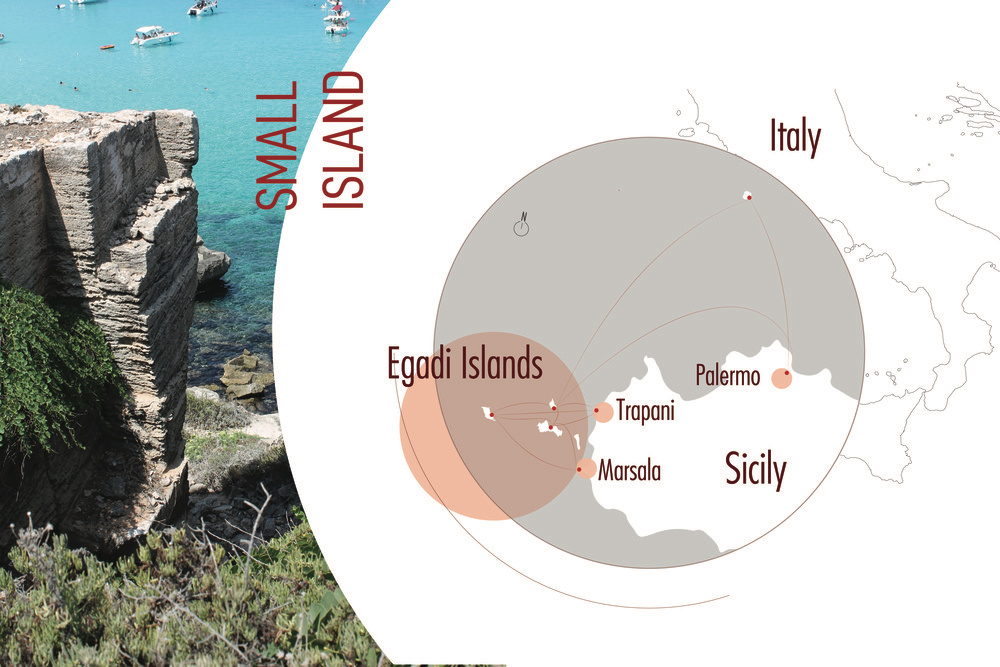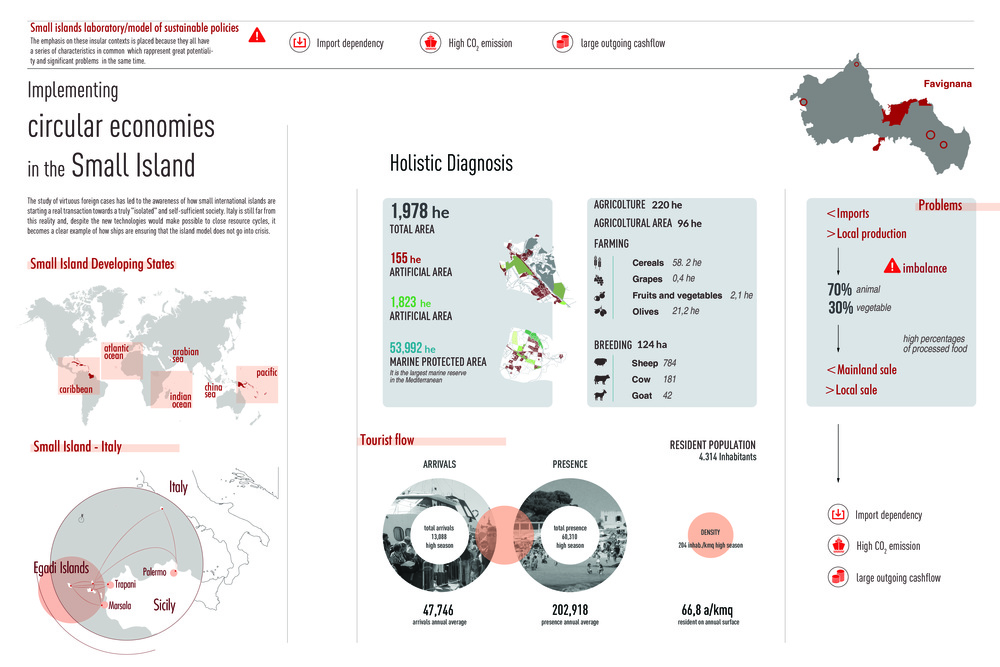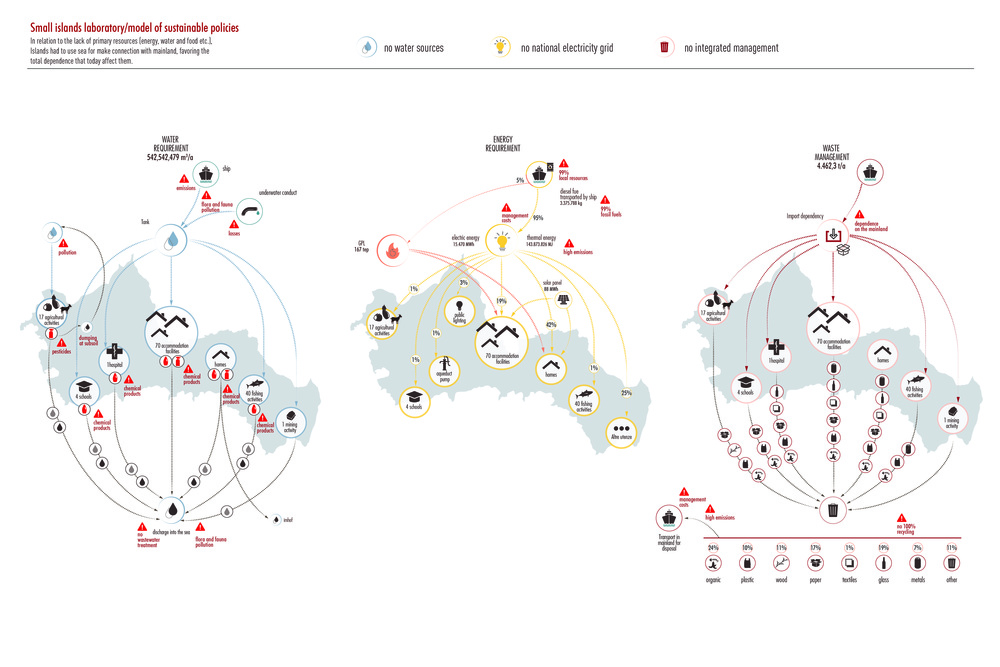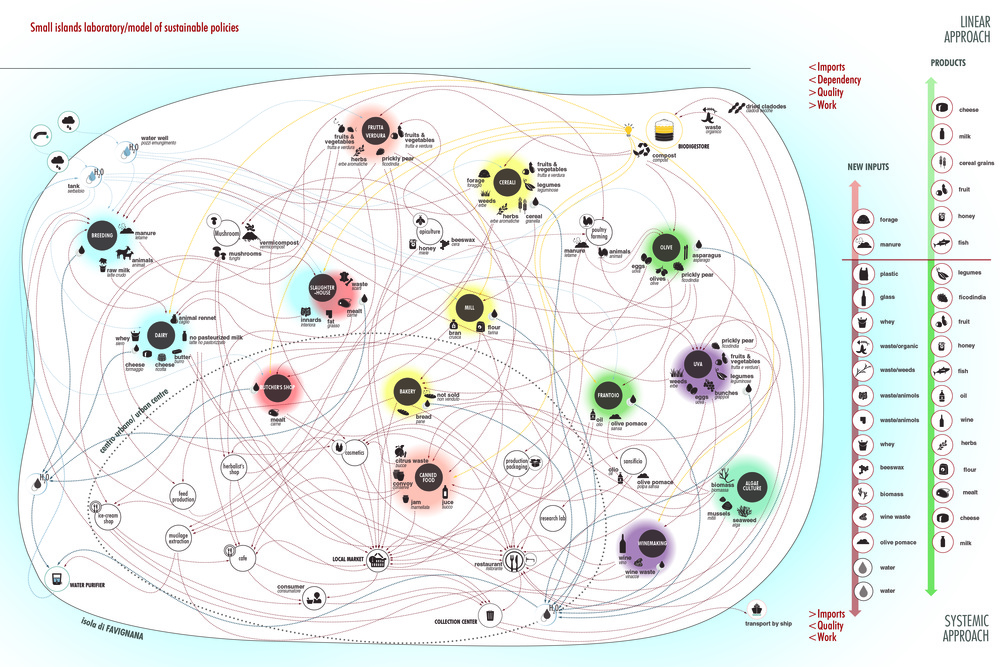Honorable Mention
Integrated Systemic Design Project in the Egadi Islands
The ecological transition for the islands in the circular economy era
Solution
The main topic of my work is about the sustainable development of the Minor Islands. In more detail I am trying to identify a Sustainability Plan within the archipelago of Egadi islands, in order to promote independence, and develope a system that could become a model in the world in the diffusion of innovative solutions.
Project Description
The emphasis on these insular contexts is placed because they all have a series of characteristics in common, which represent great potentiality and significant problems in the same time. Among the main problems there is the strong dependence on land in terms of energy, water and material resources; they are guaranteed only by transport in tankers. Furthermore, the phenomenon of tourist seasonality, characteristic of the islands, makes the territorial context even more critical as it has to face a greater quantity of diversified flows (material and human ones) concentrated in a relatively short period of time. This phenomenon creates repercussions on the environment, an element on which tourism itself depend. Starting from a holistic analysis of the territory, I am using a systemic approach, in order to implement a re-planning of resource flows, inspired by circularity, as input that become outputs, which return to being raw materials for new cycles.
Overview of the Solution
The redesign will initially affect existing island activities (breeding, cereals, vines, olive trees, fruit and vegetables); this activities, through an optimization of the single process phases, will balance flows in a sustainable way, by the reuse of the output as raw materials of new cycles. The new generated Macrosystem aims to be a “guiding idea” of development which, through the systemic approach, simulates the functioning of biological systems. Every single element is related to the whole; and the whole is closely connected and interdependent. An integrated complex that prefers bioresources (input) and the reuse of “waste” (output); associated with the minimum use of local resources, the production of waste and externalities (emissions).
In this way, a circular island economy is created, capable of promoting the interdependence of the economic and guaranteed sectors, thus, the environment and local communities. In particular, this system has the objective of minimizing the dependence of needs, favoring the development of the coastal and rural area of the Egadi. Through the interaction of the various eco-compatible activities, it will be possible to guarantee the consumer (citizens and tourists) a greater availability of healthy and qualitatively superior products. The increase in the quality of the products offered, once in turn an improvement in terms of health and well-being. The new economy created by creating stable and lasting work in existing practices and promoting the increase of employment with the development of new activities.
Through the research laboratory, the archipelago establishes collaborations with research centers, universities and Sicilian schools, as well as encouraging projects on sustainability and environmental protection. The realization of the integrated project did not include the last phase, but simply the starting point for an extended extended project. In fact, the communication and the sharing of the knowledge implemented, as well as the development of the awareness raising procedure of the island reality, will be equally important; especially for tourism In conclusion, the “Integrated project for the development of the Egadi islands” was born from the synergy of the productive, cultural, food and wine, tourism and research activities; with the ultimate aim of the Favignana tariff, the sustainability model.
PROJECT TEAM
Ornella Realmuto
INSTITUTION
Politecnico di Torino, Italy
Category
System
FACULTY/COURSE ADVISOR
Pierpaolo Peruccio and Luigi Bistagnino
STAKEHOLDERS
Municipality of Favignana



